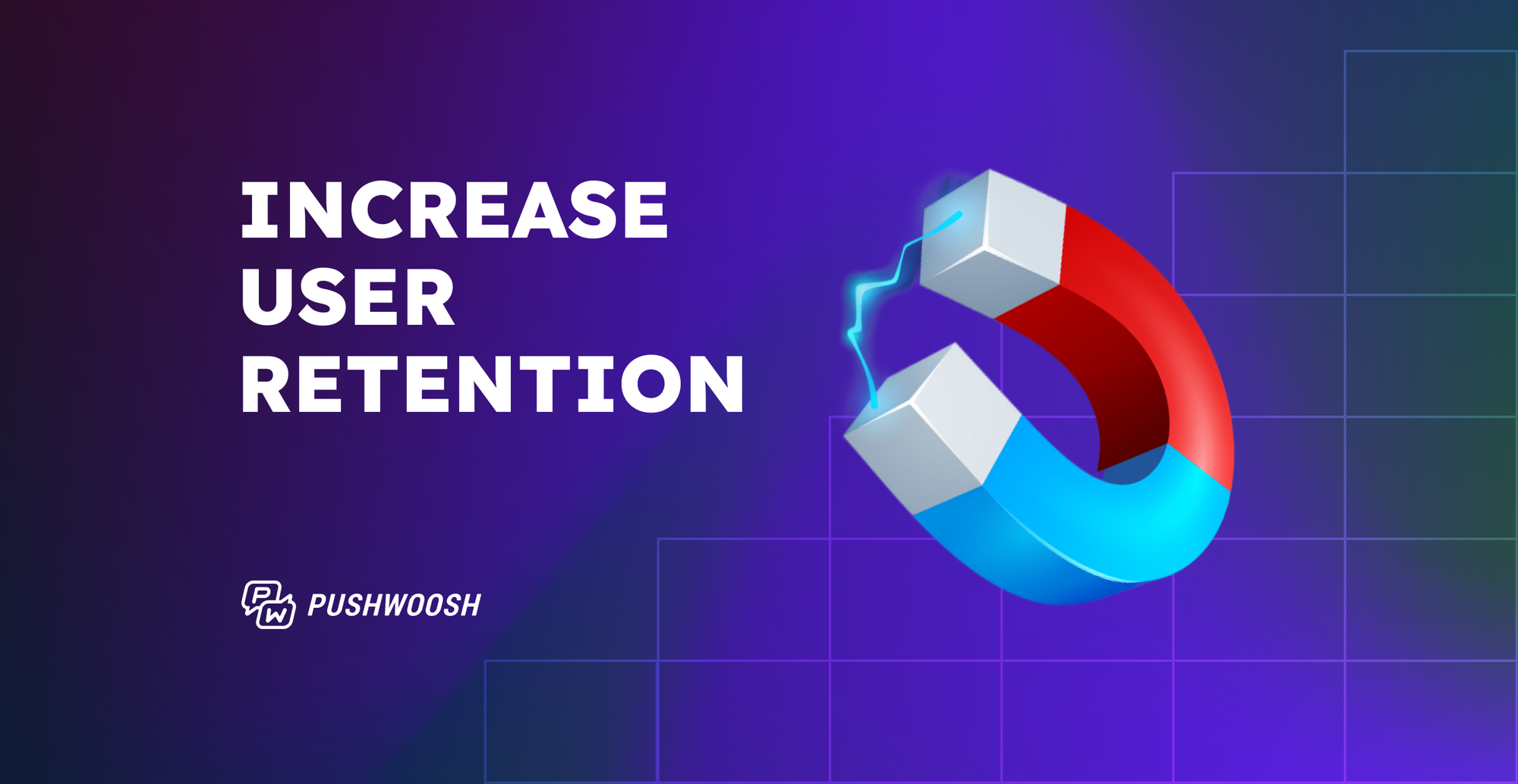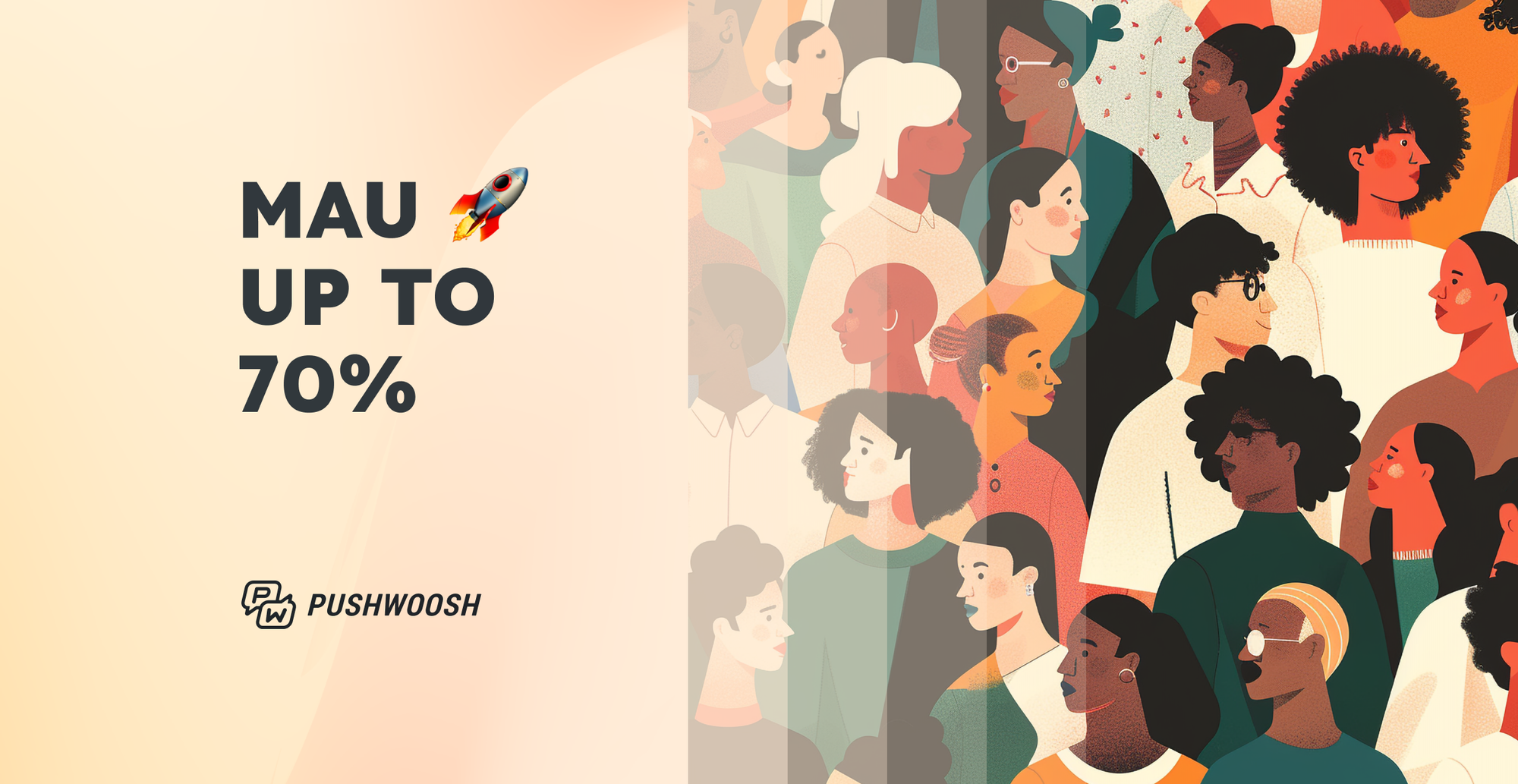Behavior-Based Marketing Drives Conversions
What Is Behavior-Based Marketing?
Behavior-based marketing (also known as behavioral marketing) is all about delivering the most relevant and user-centric content to your users as soon as they perform certain actions in your app or on your website. Such messages are always deeply contextual and engaging, which drives conversions and revenue growth.
What Makes Behavior-Based Marketing Messages So Effective?
When you align the communications you send with users’ behavior, you enjoy all the benefits of behavior-based marketing:
- Your messages are relevant to your customer experience;
- They are contextual, always to the point for your audience;
- Your communications are timely, because they reach users at the moments when they are most likely to take action.
How Behavior-Based Marketing Works in Pushwoosh
In Pushwoosh, we have our Customer Journey Builder tool that allows setting any kind of time and event triggers for your communications.
Once a user triggered your chosen trigger, they will get involved in a messaging flow. Your sequence may consist of push notifications, in-app messages, and emails, and every next message may be sent in response to another event triggered in your app. You can even track push notifications opens and differentiate your further communications depending on whether a user has clicked on your push or not.
Master behavior-based marketing with Pushwoosh Customer Journey Builder
How Businesses Use Behavior-Based Marketing
Cross-Selling
Once your users buy a certain product/service, Pushwoosh delivers them a message that recommends the products they most likely want to purchase next. It creates great opportunities for upselling and cross-selling.

Increasing Opt-In
Before you can communicate with your users via pushes, you need to ask their permission. It’s extremely important to choose the best time for the permission request. Set certain event criteria that will trigger request delivery.
Let’s imagineyour user has viewed a certain item in your store 2 times. Launch a permission request and talk about how push notifications will update them on all discounts and special offers that apply to the item. It’s highly likely they’ll get interested.

Onboarding Users
When you have new users in your app, it’s necessary to show them around. In order to make a good first and it’s important that your messages are tied to their actions is the app. At different points of their journey, they need different types of content. With behavior-triggered messages, you can always deliver the most relevant content to each user via various channels, moving them down the sales funnel, closer to their first purchase.

Recovering Abandoned Carts
Let’s imagine your user has added a product or a bunch of products to their shopping cart, but haven’t completed the purchase for whatever reason. Create the Event that signals about abandoned products in a user’s cart and remind them to check out! A simple yet effective way to boost sales!

Collecting Positive Reviews
Pushwoosh analyzes your users’ behavior (checks how often they launch your app, how much time they spend using it, for how long they’ve had it installed etc.) and decides whether they can be put in the Happy User Segment. If they can, it waits for these users to successfully complete their tasks in the app (not interrupting their valuable user experience) and then sends a push, asking them to rate your app.

This way, you can improve your app store rating by asking only your happiest users to rate your app.
As you can see, messaging based on user behavior creates numerous marketing opportunities for all kinds of businesses.
Request a free demo to see how behavior-based marketing communications can improve your business results:



